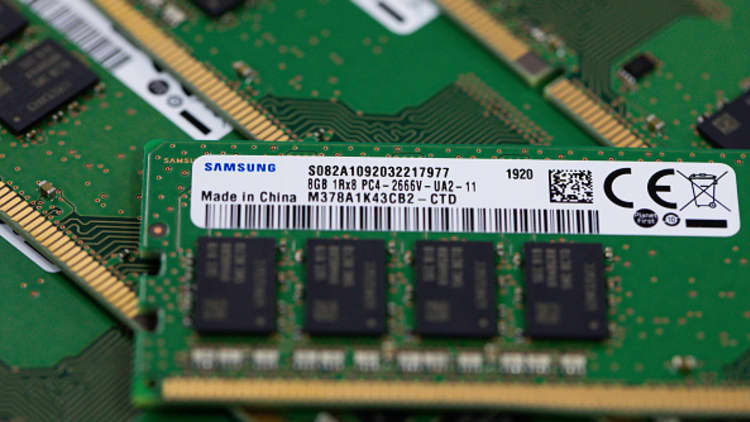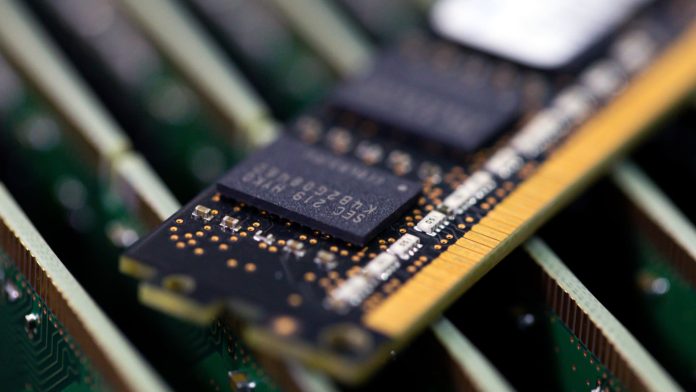[ad_1]
Samsung Electronics Co. 4GB Double-Data-Rate (DDR) 3 memory module, top, and 8GB DDR 3 memory modules are arranged for a photograph in Seoul, South Korea, on Tuesday, July 9, 2019.
SeongJoon Cho | Bloomberg | Getty Images
South Korean chip giants Samsung and SK Hynix will be allowed to ship U.S. semiconductor manufacturing equipment to their China factories indefinitely without separate U.S. approvals, South Korea’s Yonhap News Agency reported on Monday.
The U.S. government has already notified the two companies of its decision which takes effect immediately, Choi Sang-mok, Seoul’s senior presidential secretary for economic affairs, told reporters on Monday.
Previously, Samsung Electronics and SK Hynix obtained one-year waivers from the U.S. to continue importing advanced tools for their China plants. The waivers would have expired this month.
“The U.S. government’s decision means that the most significant trade issue of our semiconductor companies has been resolved,” said Choi.
The latest development quells concerns Samsung and SK Hynix have about their chip production in China, which partly relies on U.S. equipment.

China is a key manufacturing hub – accounting for 40% of Samsung’s total flash memory chips (NAND) production capability, according to a Fitch report. It also accounts for 40%-50% of SK Hynix’s dynamic random access memory (DRAM) chips and 20% of its NAND capacity.
Samsung Electronics and SK Hynix are the world’s largest and second-largest DRAM memory chipmakers, according to data from market research firm TrendForce, with U.S.-based Micron trailing in third place.
Last October, the U.S. implemented sweeping rules aimed at limiting China’s ability to obtain or manufacture high-tech semiconductor chips. Washington is concerned that China would use such high-tech chips to advance its military capabilities.
Beijing responded by pouring billions of dollars into its domestic semiconductor industry, which is making some progress toward more advanced chips.
For example, Huawei quietly launched a new 5G-enabled smartphone last month despite existing U.S. sanctions. The 5G processor found in the phone was surprisingly produced by domestic firm Semiconductor Manufacturing International Corporation. The component was far more advanced than what many industry observers thought the company could produce.
[ad_2]
Source link



